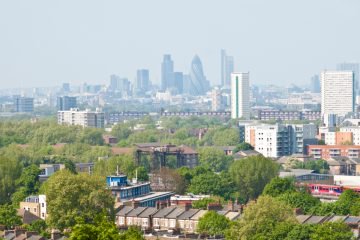Tenants Cannot Find Affordable Homes in London
London could soon lose its labour workforce, as low-paid workers cannot find an affordable home to rent in the capital.
Flat and house share website SpareRoom has found that there is not one postcode classed as affordable for tenants on the London Living Wage. Affordable is described as the rent costing no more than 35% of take-home pay.
Even the cheapest areas for renting, including Thamesmead in SE28, are no longer reasonable for those on the London Living Wage of £9.15 an hour.
Often, tenants earning this salary must budget over half of their take-home pay for rent.
The average weekly income for a worker on the London Living Wage is £292.69 after tax. The average weekly room rent has increased by 6% in the last year, to £164.31, meaning that tenants must spend 56% of their net income on housing.
Tenants living in postcodes starting with W spend around £810 per month on a shared property.
In East London, the average monthly room rent is £676. In the N and NW postcode areas, average monthly rents are £635 and £721 respectively.
Apprentices could soon be priced out of the market altogether.
A room in London’s cheapest postcode district is £480 a month. This is £38 more than an apprentice earns.
Director of SpareRoom, Matt Hutchinson, says: “”We’ve reached a point where the housing crisis is driving the lowest paid workers out of the capital.
“Even the cheapest way to rent, flat sharing, is officially unaffordable to them across the whole of London.
“The sad irony is that those on the Living Wage are what keeps London ticking, and they need to be able to afford to live in the city that depends on them. Rising rents are forcing many to live hand-to-mouth or, increasingly, forcing them out.
“Apprentices are in an even worse position.
“London is quite rightly celebrated for its vibrancy, diversity and creativity. To protect that, we must make it affordable to live in; otherwise it’ll turn into nothing more than a theme park for the rich.”
Hutchinson urges: “The Government needs to take action to make sure the capital doesn’t face a labour shortage that could paralyse the heart of the British economy.”1










